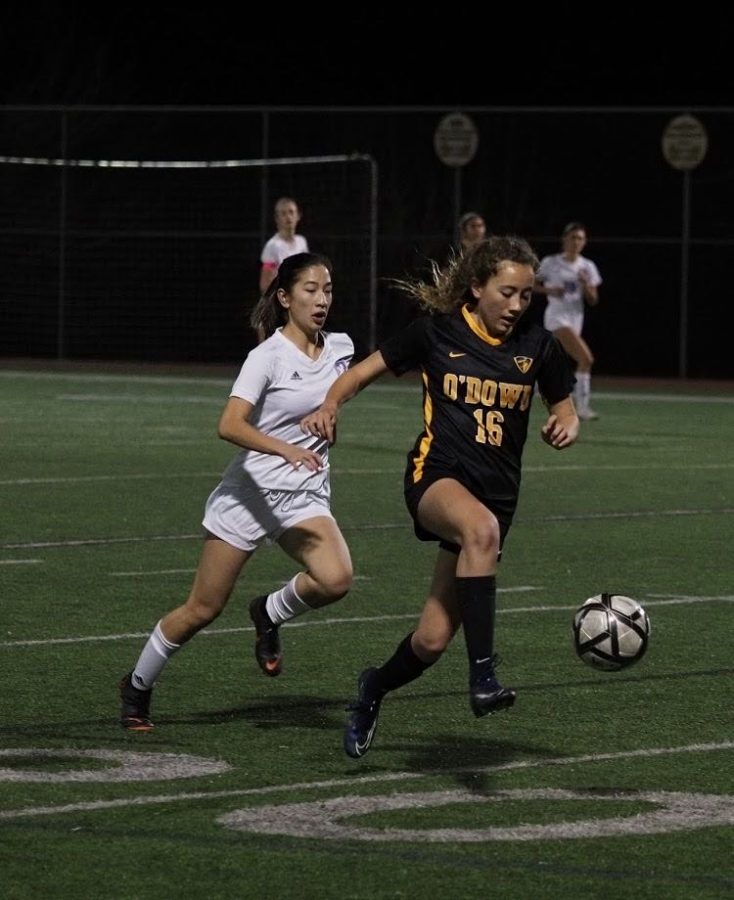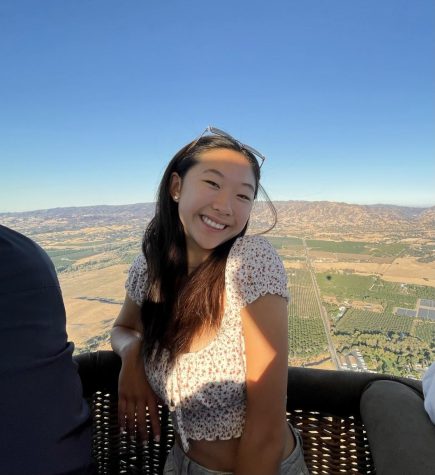The New World of Sports Recruiting
The COVID-19 Pandemic has warranted a new form of sports recruiting, affecting O’Dowd athletics.
September 9, 2020
Athletes at Bishop O’Dowd and prospects from all around the world are adapting to major changes as a result of the pandemic, primarily the lack of live sporting events, restrictions from NCAA, and changes in communication with coaches. These inevitable changes have shifted athletes and coaches from the norm to a new form of recruiting.
Katie Senn ‘22, women’s varsity soccer player, shares her personal experience with soccer recruiting, claiming, “This whole situation makes it harder to expose myself to more colleges and it limits my options. It’s the most important year because this is the time colleges want players to verbally commit.”
Since March, the implementation of social distancing nationwide has prohibited coaches from attending sporting events. Without face-to-face interactions, virtual communication has been the key factor for students to reach coaches. Therefore, the changes to athlete’s evaluations put them at a disadvantage, as they are dependent upon in-season development and performances. These extra roadblocks make it challenging for coaches to see prospects’ full-potential and abilities.
Senn shares that she has made adjustments to how she can be evaluated by sending in films of her playing and practicing drills as an alternative to in-person contact. A lot of players are also impacted by the lack of current statistics and scores, which puts them at a disadvantage because they are unable to display their full capability. Additionally, college coaches still prefer to see players in person and hope to see athletes play after quarantine.
With the limited recruiting progress, athletes are expected to maintain, if not improve, their skills on the field. Senn shares how she has utilized this time during the pandemic to better herself for when recruiting continues and says, “I took this opportunity to grow and explore myself more as a player and my mindset. Personally, I focused more on all aspects that will positively impact my performance; strength, technical skill, endurance, agility, and positive mentality.”
The limiting displays of athletic skills during this time has also emphasized the importance of academics. By taking advantage of the time to work hard on athletics and schoolwork, athletes will be well ready.
Taking rigorous classes shows colleges that one is a well-rounded student and can excel in areas beyond sports. As Senn shares, “I’m taking classes that will set me up to study physiology, nutrition, and or environmental science. APES, sports med, and anatomy. It’s really important to have good grades because sports don’t guarantee enrollment.” Working hard by taking the toughest schedule and trying one’s best is what top colleges look for in their student-athletes.
Athletes continue to work hard on and off the field, and as Senn explains, “ I want to be the player that comes back even better than before. I want to show that even with a long period of not playing actual games, I will stay persistent and work hard consistently toward my goals of playing D1 soccer and maybe traveling internationally.”
Changes to the recruiting process is inevitable, however, maintaining a positive outlook for the future of the sports world remains the best choice. Whether or not virtual recruiting will become the new norm, one final piece of advice to athletes is to be patient and ride out the storm. Continue to work hard and play hard.


